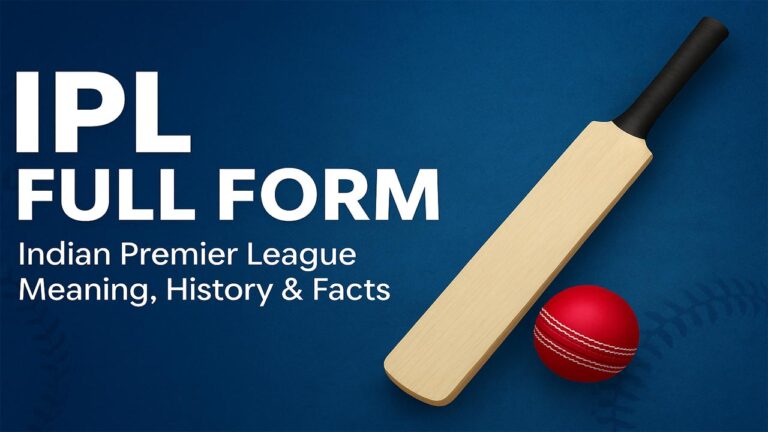IPL stands for “Indian Premier League.” This is a professional Twenty20 cricket tournament in India, featuring the world’s best players competing as teams. Launched in 2008, the league has become a beloved fixture in the hearts of cricket fans and is a huge source of entertainment worldwide.
IPL – Full Form
- In Bangla: Indian Premier League (ইন্ডিয়ান প্রিমিয়ার লিগ)
- In English: Indian Premier League
- It is an annual cricket competition organized by India’s cricket board (BCCI).
History & Origin of IPL
- The IPL began in 2008.
- Its concept was inspired by England’s “English Premier League” (football).
- The BCCI launched it to cultivate new audiences and improve the quality of cricket.
Importance of IPL in Cricket
- It is the most popular and lucrative cricket league in the world.
- A major platform for discovering new talent.
- Fosters international camaraderie and cultural exchange among players.
Fun Facts about IPL
- IPL is the second most-watched sports league globally.
- The first-season champion was Rajasthan Royals.
- In 2023, IPL’s media rights fetched ₹48,390 crore.
- Chris Gayle’s highest individual IPL score is an unbeaten 175 runs.
- The “Orange Cap” and “Purple Cap” are special seasonal awards for top run-scorer and wicket-taker respectively.
Full Form of IPL in Other Languages
- English: Indian Premier League
- Hindi: इंडियन प्रीमियर लीग
FAQ (Frequently Asked Questions)
What does IPL stand for?
It stands for “Indian Premier League.”
When did the IPL start?
It started in 2008.
Who organizes the IPL?
The IPL is organized by the Board of Control for Cricket in India (BCCI).
Conclusion
The IPL is more than just a cricket league—it’s a powerful emotion, a vibrant festival. Every year, millions enjoy every moment of IPL on TV and in stadiums. For cricket enthusiasts, understanding IPL’s history and significance is surely a delightful experience.

Your comment will appear immediately after submission.